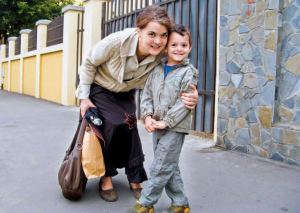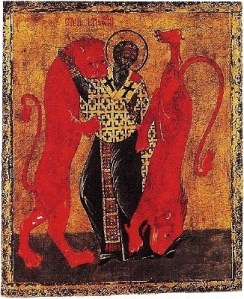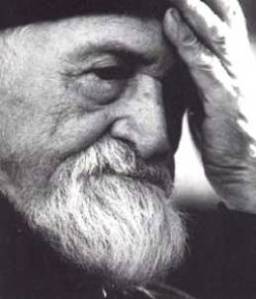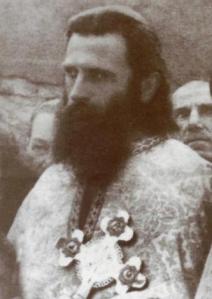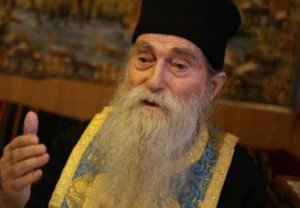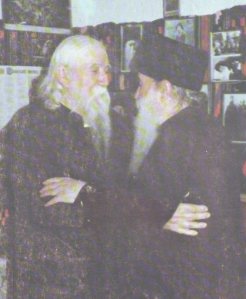 In the Wilderness with Fr. Cleopa – Fr. Arsenie Papacioc Remembers
In the Wilderness with Fr. Cleopa – Fr. Arsenie Papacioc Remembers
Let me tell you what obedience means. This heavy rainfall came upon us once while we were in a forest with not so tall trees; the trees were not higher than a regular house. Father Cleopa was sitting in one spot, I was in another one, looking for thicker shrubs for us to take shelter under. However, Fr. Cleopa kept calling me from under the branches to come sit next to him in that particular spot. There were about 30 meters between the two of us. I kept telling him that my spot was better and saying “No!”, but upon a second thought, I said to myself: Wait a minute. Why don’t I just listen to Father Cleopa! So I just ran out from there and the instant I left it, lightning struck down that exact spot where I had been sitting a second before. I was SO impressed. Obedience is SUCH a precious thing.
***
– When we got back from the wilderness, in 1954, Patriarch Justinian shared this view that he had in our regard: to send us to all monasteries in Romania at least twice a year, to confess and provide spiritual advice to all fathers there. Yet, I told him that I felt differently, because monasteries have their own Confessor Fathers and it just wasn’t right to barge in on them, lest you should create some antagonism: “Who are these? What are they? Some desert-dwellers? Now, I wouldn’t call THOSE any sort of great saints!” and the like.
So I told our Patriarch that we should keep our own monastery, Slatina, open for everyone who would want to come and get spiritual profit. And that’s exactly how it happened.
After I was arrested in Suceava, we were taken by car to Bucharest, to be tried. The investigation lasted 90 days and was very bad. Beatings, physical aggression, they would pull my beard in all possible ways… In the end, the investigator himself got scared, too. He was a very aggressive captain. He cut my beard in half (and my beard remained just as long). And I said to him: “You will answer for that before God!” You know what he told me? “That’s alright, it’s not the beard that makes one a monk!” When he said that, I told him: “It wasn’t you who spoke, but the Holy Spirit”. Only Holy Clement of Alexandria has a commentary about the beard; he says: “The beard has much spiritual influence over one’s way of thinking”.
Excerpt from: http://www.razbointrucuvant.ro/2011/08/04/parintele-arsenie-papacioc-si-parintele-cleopa-cand-se-intalnesc-batranii-sfinti-si-se-bucura-ingereste-unul-de-altul-maica-domnului-cum-de-l-ai-adus-aici/
 Father Ioan Guțu was one of the most important Romanian praying Fathers who lived at Mount Athos. Born in 1906, in the Bessarabian* region of Soroca and reposed in the Lord on December 5, 1996, in his cell at the Holy Mountain, Fr. Ioan Guțu lived and died in complete humility.
Father Ioan Guțu was one of the most important Romanian praying Fathers who lived at Mount Athos. Born in 1906, in the Bessarabian* region of Soroca and reposed in the Lord on December 5, 1996, in his cell at the Holy Mountain, Fr. Ioan Guțu lived and died in complete humility.